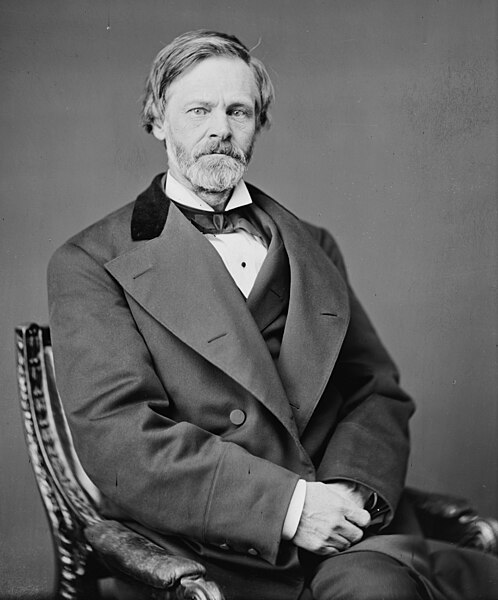1884–85 United States Senate elections
The 1884–85 United States Senate elections were held on various dates in various states, coinciding with the presidential election of 1884. As these U.S. Senate elections were prior to the ratification of the Seventeenth Amendment in 1913, senators were chosen by state legislatures. Senators were elected over a wide range of time throughout 1884 and 1885, and a seat may have been filled months late or remained vacant due to legislative deadlock. In these elections, terms were up for the senators in Class 3.
1884–85 United States Senate elections
1884 United States presidential election
The 1884 United States presidential election was the 25th quadrennial presidential election, held on Tuesday, November 4, 1884. In the election, Governor Grover Cleveland of New York defeated Republican James G. Blaine of Maine. It was set apart by unpleasant mudslinging and shameful personal allegations that eclipsed substantive issues, such as civil administration change. Cleveland was the first Democrat elected president of the United States since James Buchanan in 1856, the first to hold office since Andrew Johnson left the White House in 1869, and the last to hold office until Woodrow Wilson, who began his first term in 1913. For this reason, 1884 is a significant election in U.S. political history, marking an interruption in the era when Republicans largely controlled the presidency between Reconstruction and the Great Depression.
Image: Stephen Grover Cleveland
Image: Unsuccessful 1884
Chester A. Arthur, the incumbent president in 1884, whose term expired on March 4, 1885
Benjamin F. Butler from Massachusetts





